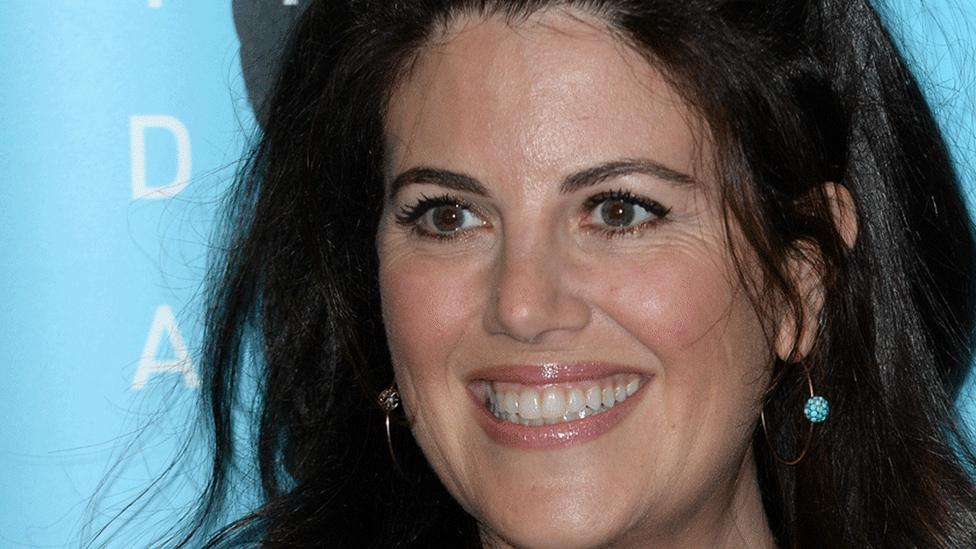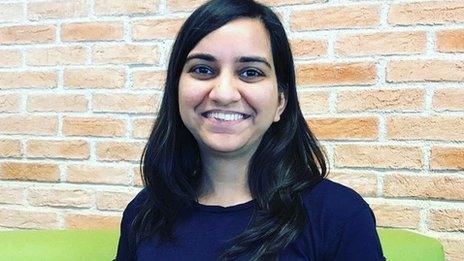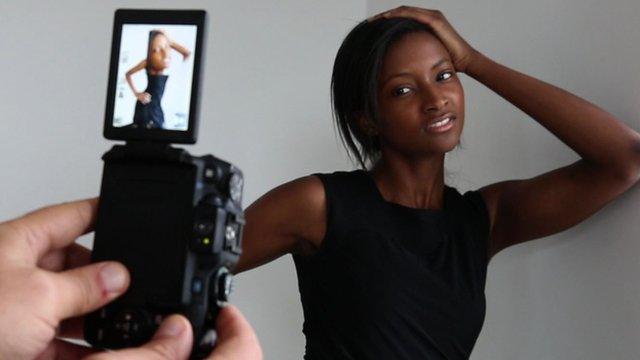Lyndsey Scott says models can also be coders
- Published

Former Victoria Secret model Lyndsey Scott has responded to online critics who doubted her credentials as a computer programmer.
An Instagram photo of her captioned "Coding is for anyone", posted by an account for the programming community, drew negative comments and disbelief.
Ms Scott replied from her own account, listing her qualifications and naming the tech firms she had worked for.
She told the BBC her coding income helped her to pursue other interests.
"I'm only stating facts in the hope I'll convince at least one negative commenter that programmers can come in all shapes, sizes, genders, races, et cetera," she wrote.
"So I hope they'll think twice before doubting other women and girls they encounter in tech."
Life in both fashion and tech worlds
Ms Scott is a computer science and theatre graduate from Amherst College in Massachusetts.
She pointed out she was the lead Apple iOS software engineer at US-based crowdfunder site RallyBound, and was also on the iOS tutorial team at online education site Ray Wendelich.
Ms Scott said she had also received support online.
"It's clear that there are plenty of women and men in tech that would love for things to change," she said.
"As the tech industry becomes more and more central to the world economy, I think representation will become more and more crucial."
"My schedule's probably very different from most people in tech because I only take on remote contracting work," she told the BBC.
"I feel very fortunate that I'm able to program around my acting auditions, classes etc... Without the income from my programming work, I probably wouldn't have nearly as much freedom to devote time to everything I'm passionate about."
Raising awareness
According to the Joint Council for Qualifications, which represents the UK's largest education providers, in 2018 just over 15,000 girls completed their GCSE computing studies compared with nearly 60,000 boys.
Organisations such as Girls Who Code and Stemettes have been set up to encourage more women to work in science, tech and engineering roles.
Anne Marie Imafidon, co-founder of the Stemettes, said that raising awareness helps.
"We're definitely seeing that discussions around diversity and inclusion are making people think about how they treat women in their workplaces," she said.
"What will make things better? More people considering the impact their language and actions can have on others."
- Published6 March 2018

- Published11 October 2016

- Published10 March 2014
